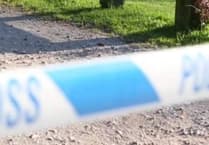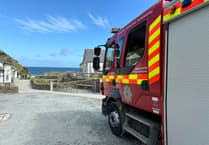Defibrillators have been installed at Cornwall Air Ambulance HQ in Newquay, in its furniture collection vans and in its seven charity shops, to help anyone who suffers a cardiac arrest.
Often found in public places, the potentially lifesaving devices are used in emergencies when someone’s heart stops beating.
They give an electric shock to the heart which, in some cases, can be used to reset the normal rhythm of the heart. This is critical in trying to save a patient’s life.
When used, the defibrillator will instruct you what to do and how to use the device, until the emergency services can arrive and provide further care.
Twelve of these have now been rolled out across the charity, including one for use at its events, to help improve a patient’s chances if a medical emergency were to occur.
Dr Dave Ashton-Cleary, the lead airbase doctor at Cornwall Air Ambulance, said: “When someone’s heart stops, time is of the essence – quick defibrillation and immediate CPR are lifesaving.
“The use of a defibrillator provides those patients who need it with the best chance of restarting their heart. Every minute of delay in delivering the shock reduces the chances of survival by nearly 10 per cent.
The best window for survival has usually passed by the time the emergency services can get to scene, so these devices are vital.
“Obviously, only those who regain a heartbeat will survive, but those who survive with the best return to health are those who have the heartbeat regained soonest.”
Last year, Cornwall Air Ambulance responded to 356 cardiac related missions, 330 of which were cardiac arrests. That is around one third of the 1,050 incidents the crew attended across the whole of 2022.
Tim Bunting, chief executive at Cornwall Air Ambulance, said: “Having access to defibrillators in our shops, vans and here at our headquarters means that members of the public, our staff and volunteers can be treated as quickly as possible in the event of a cardiac arrest.
“We’re pleased to be able to offer this as part of our service to the people of Cornwall, and our ongoing commitment to provide the best possible critical care to patients.
“We hope our defibrillators will never have to be used, but it is vital that we have them ready and available to help save lives if needed.”





Comments
This article has no comments yet. Be the first to leave a comment.